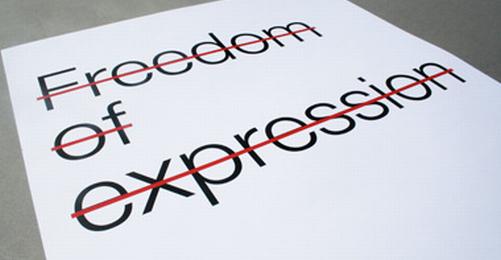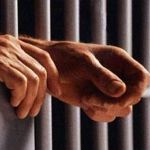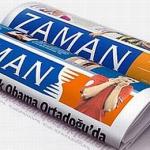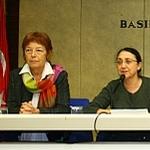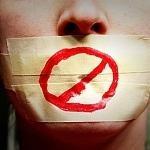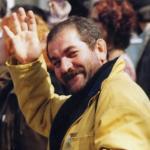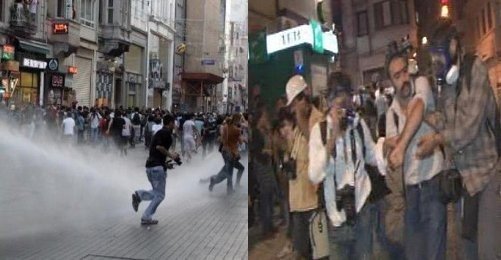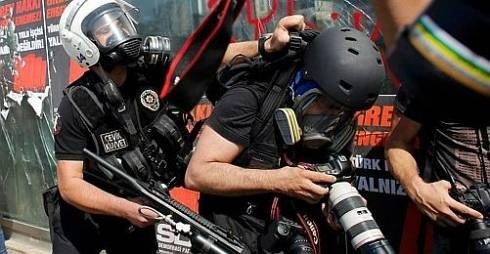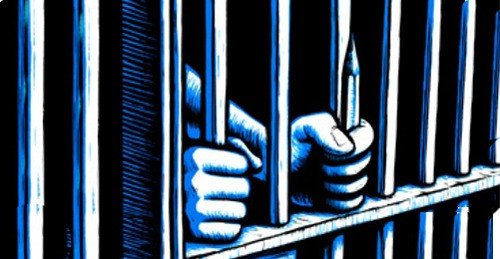In 2011, Human Rights Watch (HRW), PEN International (PEN), Reporters Without Borders (RSF), the International Press Institute (IPI), the European Federation of Journalists (EFJ), Freedom House, the Committee to Protect Journalists (CPJ), the Organization for Security and Co-operation in Europe (OSCE) and the Council of Europe Commissioner for Human Rights Thomas Hammarberg all made several announcements or released reports regarding press freedom and freedom of expression in Turkey.
In their reports and declarations, the international organizations drew special attention to articles of the Anti-Terror Law (TMK) and the Turkish Criminal Law (TCK) that restrict freedom of expression and to lengthy detention periods.
Representatives and rapporteurs of the organizations visited Turkey throughout the year and observed hearings related to the Oda TV case and trials regarding the international bestsellers 'The Soft Machine' and 'Snuff'.
Also local and international journalism and rights organizations based in Turkey released numerous statements on violations of press freedom and freedom of expression in 2011.
The Turkey Journalists Association (TGC), the Turkey Journalists Union (TGS), the Platform for Freedom for Journalists (GÖP), the Platform for Solidarity with Detained Journalists (TGDP), the Turkey Writers Union (TYS) and the Human Rights Association (İHD) followed up several trials and the Oda TV trial in particular.
The local and international organizations highlighted violations of freedom of expression in Turkey and also lengthy periods of detention in their press releases, protests, demonstrations and reports.
Articles of the TMK and TCK related to terrorism constituted another focal point in the local and international reports. It was repeatedly emphasized in these reports that provisions in the context of prosecutions and convictions of journalists restricted freedom of expression and that corresponding articles should be amended.
Two of the most significant obstacles before press freedom and freedom of expression in Turkey in 2011 were raids on newspapers and arrests of journalists, writers and academics in the course of the so-called KCK operations regarding the Union of Kurdish Community (KCK) as the umbrella organization that also includes the outlawed armed Kurdistan Workers' Party (PKK).
The government of the Justice and Development Party (AKP) frequently released statements in 2011 declaring that the majority of journalists were not detained on the grounds of their writings whereas the opposition claimed the contrary.
Several deputies of the opposition Republican People's Party (CHP) and the Peace and Democracy Party (BDP) brought the issue of detained journalists to the agenda of the parliament in their speeches. They also pointed to lengthy detention periods and articles of the TCK and TMK related to terrorism.
The 2011 "Freedom of Thought Reward" bestowed by the İHD in honour of deceased human rights advocator Ayşe Nur Zarakolu was given to Radikal newspaper reporter İsmail Saymaz, TGDP spokesman Necati Abay and Emine Demir, former editor-in-chief of the Kurdish Azadiya Welat newspaper.
The press freedom reward of the TGC in honour of the anniversary of the abolishment of censorship was awarded to GÖP, TGS President Ercan İpekçi and detained journalists Ahmet Şık.
Regulations, effects, reactions, legal remedy
Speech on press freedom in parliament: On 14 December, CHP Istanbul Deputy Melda Onur drew attention to detained journalists in her speech about the budget of the Parliamentary General Directorate of Press and Information. She said, "While you are building great palaces of justice, justice itself is continually shrinking". Onur mentioned various trials, detained journalists and lengthy detention periods in her speech.
Miscalculation of CPJ: The international Committee to Protect Journalists emphasized a sharp increase in the number of detained journalists worldwide in their special report released on 9 December. "CPJ identified 179 writers, editors, and photojournalists behind bars on December 1 (...).Iran was the world's worst jailer, with 42 journalists behind bars (...)Turkey also ranked among the world's worst", the CPJ announced and listed Turkey with eight journalists in detention. The Platform for Detained Journalists (TGP) identified 65 detained journalists in Turkey and raised a question mark on the report of the CPC with only eight detained journalists announced for Turkey. In a statement made to national daily Milliyet, the CPJ explained that only those names were included in the list where a reliable connection between the arrest and journalistic activities could be established during the research for the report.
Proposal for Law No. 212 for journalists: On 8 December, deputies of the CHP and BDP who come from the field of journalism submitted a law proposal for the full implementation of Law No.212 for journalists (regulating the rights of journalists). In a press conference in parliament, CHP deputies Oktay Ekşi, Melda Onur and Rıza Türmen said it was a general perception that the only provisions in laws like the TCK and TMK obstructed journalists in Turkey from fulfilling their duties freely. Ekşi stated that about 75,000 to 80,000 people were actively doing journalism in Turkey. Only 4,000 of these journalists were benefiting from Law No.212, Ekşi pointed out. He stressed that the law was enforced 50 years ago and that sanctions for employers who violated the law were limited to TL 200 (€ 80). The proposal anticipated to raise sanctions to a minimum of TL 5,000 (€ 2,000) per journalist, he explained. Ekşi added that the proposal did not only concern the written press but included electronic media outlets like radio and television and also internet journalism.
Internet sites on evolution banned: Access is being denied to all internet sites related to evolution as the result of the children profile of the internet filtering system implemented by the Council of Information Technology and Communications (BTK). The restriction on internet access caused uproar among internet users as voiced on 8 December. The "Secure Internet" filtering system was applied on 22 November. Its children profile bans the entire number of websites concerned with the theory of evolution and British naturalist Charles Darwin. This comprises all sites that contain the words "evolution" or "Darwin". Also sites like www.aboutdarwin.com, www.darwinday.org and www.evrimianlamak.org ('understanding evolution') are included. At the same time, websites about the theory of creation such as www.yaratilis.com ('creation') or the anti-evolution site www.evrimaldatmacasi.com ('evolution deceit') can be accessed easily.
"We want justice, no fairy tales": On 1 December, the Journalist Friends of Ahmet (Şık) and Nedim (Şener) (ANGA) organized a protest march against the arrest of Özgür Gündem newspaper writer Cengiz Kapmaz and the 1001st day in detention for Cumhuriyet newspaper writer Mustafa Balbay. The demonstration was themed "We want justice, no fairy tales". Journalists from the Özgür Gündem, Cumhuriyet, BirGün, Aydınlık and Evrensel newspapers voiced their demand to release all detained journalists.
RSF: "False filtering; Hidden politics of censorship": The 16th Turkey Internet Conference was organized by the Internet Technologies Association in Izmir from 30 November to 2 December. The "Secure Internet" application implemented by the Prime Ministry Telecommunication Association (BTK) on 22 November was subject to harsh criticism in Turkey and abroad. The Alternative Communication Association filed a lawsuit with the Council of State on 4 November and requested the annulment of the fake regulation even though it had been made optional. RSF warned at the conference that the development of filtering systems violated international agreements.
Balbay in detention for 1000 days: The Cumhuriyet Readers group (CUMOK) marked journalist Mustafa Balbay's 1000th day in detention with a protest action at the Milli Egemenlik ('National Sovereignty') Park in front of the Turkish Parliament on 30 November. Balbay , a journalist and CHP deputy, is a detained defendant of the Ergenekon Trial. The protest action was also joined by a number of CHP deputies.
Demand for a Research Committee: On 30 November, BDP MP for Ağrı Halil Aksoy requested the establishment of a Parliamentary Research Committee in order to determine obstacles before freedom of expression.
Ministry of Justice: At the 67th meeting of the Turkey-European Union Joint Parliamentary Commission (CPC) in Brussels on 30 November, Justice Minister Sadullah Ergin announced to have taken efforts to overcome the problems in the field of press freedom and freedom of expression. An argument developed between Ergin and CPC Co-Chair Helene Flautre on the issue of detained journalists. Ergin claimed that the referring list published by the TGS was unreliable.
Journalist organizations in parliament: Representatives of journalist organizations who came to Turkey to observe the Oda TV trial met members of the Freedom for Journalists Platform (GÖP) in Parliament on 24 November. They urged for the immediate release of detained journalists and demanded the removal of obstacles before press freedom and freedom of expression. The journalists first of all talked to BDP Faction Deputy Chair Pervin Buldan. The meeting at the BDP Faction room was attended by Istanbul MPs Levent Tüzel and Sırrı Süreyya Önder and Van Deputy Nazmi Gür. EFJ President Arne König said that they had been in Turkey for two days and that they were shocked about the incidents and developments related to the Oda TV trial they observed.
Internet Filter: The application of censorship in the internet was applied on 22 November. The number of internet sites access is denied to is estimated at more than 6,000. With the 'secure internet' application, this number is expected to rocket to hundreds of thousands of sites. The first decision announced by the BTK on 22 February 2011 was withdrawn in August after massive public criticism. The revised decision was announced on 16 September 2011. As of 22 November, the BTK offer the 'secure internet' to internet users free of charge and dependent on the users' preferences. The service was introduced as a development with the aim to protect children and juveniles from information pollution and harmful contents.
Campaign to close down Sour Dictionary: On 21 November, the campaign "Shut down the Sour Dictionary" was launched via Twitter. The campaign came after a trial was opened against Sour Dictionary writer Ahmet M.S. under allegations of "public humiliation of religious values" on 17 November. Ahmet M.S. is facing up to 1.5 years in jail. The campaign was supported by Taraf newspaper writer Mehmet Baransu and Rasih Yılmaz. It was emphasized that the Sour Dictionary became an anti-religious site that should be closed down. Response headers related to the campaign were opened at the Sour Dictionary site.
Human Rights Watch: On 22 November, Emma Sinclair-Webb, Human Rights Watch (HRW) Turkey rapporteur, said that journalists Ahmet Şık and Nedim Şener should be released from prison. Both journalists are detained defendants of the Oda TV trial handled by the Istanbul 16th High Criminal Court. "Examining the Oda TV indictment, you will see that the prosecutor's office did not reveal one single convincing piece of evidence regarding terrorism charges", she announced.
PEN supports Oda TV defendants: PEN Vice-President Eugene Schoulgin made a statement on the 'ozgur-basın.blogspot.com' ('free press') website founded by the Journalist Friends of Ahmet and Nedim (ANGA). She said, "As International PEN, we demand the release of all detained writers, journalists, publishers and intellectuals who experience detention solely on the grounds of voicing their opinion in accordance with Article 19 of the United Nations Declaration of Human Rights".
Support of RSF: RSF Director of the European Panel Johann Bihr observed the Oda TV trial hearing on 22 November against journalists Ahmet Şık, Nedim Şener and Oda TV employees. Bihr claimed that the trial symbolized 'disproportionally increasing pressure on investigative journalists'.
Support of the International Press Institute: On 20 November, the IPI initiated a signature campaign for the release of arrested journalist Nedim Şener at his 262nd day in detention. Şener is a detained defendant of the Ergenekon investigation.
Freedom Express: The Royal Netherlands Embassy and the Consulate General of the Kingdom of the Netherlands organized the "Freedom Express - Özgürlük Ekspresi panel discussions on 15-16-17 November in Istanbul, Ankara and Izmir. The Freedom Express aims at creating a forum of free thought for the discussion of different ideas without polarization.
TV channels apply auto-censorship after warning of Prime Minister: The kidnapping of the Kartepe sea bus from Izmit to Gölcük (Sea of Marmara) on 11 November was initially reported as breaking news on Turkish television channels. Then, the news was removed from broadcasting. The Habertürk TV channel had a live connection to the captain of the kidnapped vessel that was cut by general publications director Yiğit Bulut. He explained that the broadcasted voice connection could be turned into a propaganda tool and called on the whole media not to turn the incident into a propaganda tool.
Deputy PM Arınç about internet media: On 5 November, Deputy Prime Minister Bülent Arınç announced that regulations about the internet media were going to be included in the Press Law (No. 5187). The legislation was expected to come into force in January 2012, Arınç said. According to the draft bill, employees of internet portals shall hold the yellow press card. Reprimands and sanctions stipulated in the Press Law will also be valid for internet news portals. The Alternative Communication Association drew attention to the risk of establishing a control mechanism for the internet by drafting a regulation within the scope of the Press Law.
Stand up for journalism: The Freedom for Journalists Platform (GÖP) and the International Federation of Journalists (IFJ) issued a press release in Taksim/Istanbul on 5 November to mark the 'Day to Stand up for Journalism'. The organizations demanded to end applications that constitute a threat to press freedom and freedom of expression.
TMK should be amended: After the arrest of writer and publisher Ragıp Zarakolu and BDP Constitutional Commission member Prof Büşra Ersanlı and many other people in the scope of the 'KCK operation' on 3 November, Human Rights Watch (HRW) announced that the judiciary system in Turkey was problematic. HRW Turkey rapporteur Emma Sinclair-Webb said that the arrests were part of the oppression applied to people doing political work in the BDP as a legal political party.
bianet opened a trial - regulations changed: The IPS Communication Foundation (IPS)/bianet applied to the Council of State for the removal of the censorship imposed to all internet users in Turkey due to a compulsory internet filter that was initially going into to be enforced on 22 August. The Council of State dismissed bianet's request on 3 November to stall the application on the grounds of changes in the regulation. The controversial filter system was developed within the "Draft Bill on Principles and Procedures for the Safe Use of the Internet" as published by the Council of Information Technologies and Telecommunication (BTK) on 22 February 2011. As the result of the trial, the BTK contacted the Council of State and did a few amendments so the application was implemented on 22 November.
Three monkey postcard from CHP Deputy Chair: On 31 October, CHP Deputy Chairman Gürsel Tekin sent a postcard with the "three monkeys" from the CHP Communication Co-ordination to mark the Day of the Detained Journalist.
Internet bans: On 27 October, the Joint Platform for Human Rights informed about 'internet law and bans' at a meeting in Ankara.
Oppression to Reuters: On 24 October, banks and market players in Turkey decided not give any comment or interviews to the Reuters News Agency because it did not call PKK members "terrorists". Reuters called them "rebels" instead. The agency does not use the definition "terrorist" for any individual or group according to its editorial policy. PM Recep Tayyip Erdoğan had said about Reuters, "I condemn and curse declaring the PKK terrorist organization in Turkey as a militia".
Hammarberg reprimand: Thomas Hammarberg, Council of Europe Commissioner for Human Rights, made a critical statement about the Turkish judiciary system after his five-day visit to the country on 14 October. According to his evaluation published on the internet site of the Council of Europe, "there are some long-standing, systemic dysfunctions in the Turkish justice system adversely affecting the enjoyment of human rights and fundamental freedoms." Additionally, Hammarberg drew attention to "excessively lengthy judicial proceedings".
Journalists protest arrests: On 7 October, employees of the newspapers Azadiya Welat and Özgür Gündem, DİHA, Fırat Distribution ltd., Gün Radio TV, Aram Publishing and the Heviya Jine magazine protested arrests of journalists in the scope of the KCK operation. As a sign of protest they had covered their mouths with black tape.
New criteria for TV series: As reported on 6 October related to the new RTĞÜK law, series will be broadcasted at appropriate times according to their explanatory labels. Series with the "+18" label will be shown after 11.00 pm. RTÜK President Davut Dursun pointed to the main criteria of national and moral values, opposing the family structure, violence and sexuality regarding series in the regulation.
New Media Order Conference: The second New Media Order Conference took place in at the Lütfi Kırdar Congress Centre on 6 October. Julian Assange, the founder of Wikileaks, was connected to the conference by video. He said that the situation of the main stream media in Turkey was not worse than the situation in the west. "You don't have to be ashamed of your media but of imprisoned Kurdish journalists", Assange announced.
TGDP condemned arrests: The Platform for Solidarity with Detained Journalists (TGDP) condemned the custodies of Özgür Gündem newspaper editor Kazım Şeker and of Azadiya Welat newspaper writer Tayyip Temel and the arrest of DİHA reporter Aydın Yıldız.
IPA: "Release Sancı and Sertabiboğlu": On 10 October, IPA called for the acquittal of Sel Publishing general publications manager İrfan Sancı and interpreter Süha Sertabiboğlu. Both of them stand trial in the context of having translated and published William Burroughs's bestseller 'The Soft Machine'.
CHP Deputy Chair criticized media: CHP Deputy Chair Gürsel Tekin criticized TRT for not having broadcasted the statement of CHP Chair Kemal Kılıçdaroğlu about the Light House Foundation made on 11 October.
Minister of Family Affairs recommended control of the media: The Minister for Family Affairs and Social Politics, Fatma Şahin, added an Article on 'Violation of Publication Service Principles' to the draft bill of the Law Related to the Protection of Women and Family Members from Violence. The addition came after the Habertürk newspaper had published the photograph of a dead woman who had visibly been stabbed in her back. As reported on 11 October, the article foresees control mechanisms and monetary fines for television channels and the press related to the regulation on violence against women.
Press Council assessed report of EU Commission: On 14 October, the Head of the Press Council, Orhan Birgit, evaluated the report on press freedom and freedom of expression released by the EU. Birgit referred to Bağış's warnings related to arrested journalist as mentioned in the progress report and claimed that saying that it was not only one single person arrested on the ground of the profession of journalism was like a denial of the truth.
Press Council warned Yeni Şafak newspaper: The Press Council issued a warning fine to the Yeni Şafak newspaper on 14 October. In a news article entitled "You are the murderer" published on 18 August 2011, the newspaper published the photographs of BDP Co-Chairs Selahattin Demirtaş and Gültan Kışanak and of DTK Co-Chairs Ahmet Türk and Aysel Tuğluk. The BDP brought the issue before the Press Council. On 19 August, the council concluded that Yeni Şafak had violated Article 4 of the Professional Press Principles ordering that 'humiliating, degrading and defamatory expressions beyond the borders of criticism regarding individuals and institutions shall not be published'. Furthermore, the council decided for a violation of Article 9 stipulating that 'nobody can be declared guilty before a court has determined the guilt' and Article 13 on 'avoiding publications that offend human values and encourage to violence and tyranny'.
TGC on media meeting: On 20 October, the TGC announced their views on the meeting PM Erdoğan held with media owners and editors-in-chief. The TGC emphasized that some television channels and the newspapers Cumhuriyet, Sözcü, Yeniçağ, Aydınlık, Birgün and Evernsel were not invited.
Auto-censorship with joint publication principles: Prime Minister Erdoğan called on the media for an "auto-control in order to avoid serving aims of terrorism" at the meeting on 20 October. After the meeting, the Anadolu Agency (AA), the Turkish News Agency (AHT), the Ankara News Agency (ANKA), the Cihan News Agency (CİHAN) and the İhlas News Agency (İHA) announced in a joint statement that they were going to "comply with the publication bans of the competent authorities".
Justice for detained journalists: On 23 October, Hüseyin Ersöz, lawyer of journalists Tuncay Özkan, Soner Yalçın, Doğan Yurdakul and Barış Terkoğlu, detained defendants of the Ergenekon trial and related cases, drew attention to the release of six people in the scope of the Light House investigation, among them RTÜK President Zahid Akman. Ersöz demanded to consider the principle of equality in the application of laws. (EG/BA/VK).





